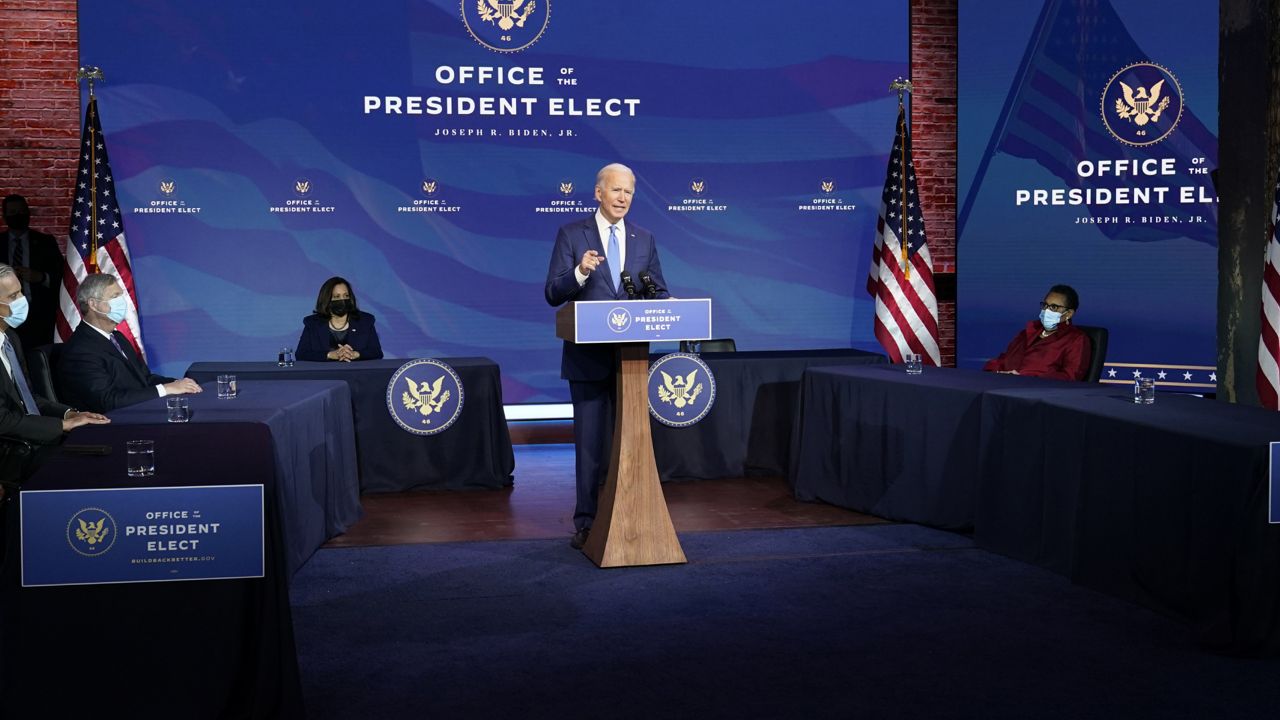With a little over a month left until inauguration day, President-elect Joe Biden is slowly but surely filling out his incoming administration.
On Friday, Biden formally introduced five new appointees and nominees to roles in his administration, leaving only a handful of top positions — including attorney general and secretary of labor — open.
Biden’s assembled picks included Tom Vilsack for Secretary of Agriculture, Marcia Fudge for HUD Secretary, Denis McDonough as Secretary of Veterans, Katherine Tai for U.S. Trade Representative, and Susan Rice for Director of the White House Domestic Policy Council.
The team highlights the president-elect’s delicate balancing act as he builds out his Cabinet, seeking to diversify his picks and reward the coalitions that helped elect him while also following his instincts to surround himself with close allies who served in the Obama administration.
“Vice President-elect Harris and I knew we’d have our work cut out for us when we got elected. But we also knew we could build a team that would meet this unique and challenging moment,” Biden said of his growing list of appointees and nominees. “Some are familiar faces. Some are in new roles. All are facing new circumstances and challenges.”
“That’s a good thing. They bring deep experience and bold new thinking. Above all, they know how government should and can work for all Americans,” Biden added.
Harris echoed Biden’s remarks, saying: “Today, we are announcing leaders who will help deliver immediate relief to every corner of our great country, from rural communities to big cities and every place in between, leaders who will help care for our veterans and their families, and advance opportunity for all Americans at this consequential moment for our country.”
Here is a list of appointees and nominees and what they had to say:
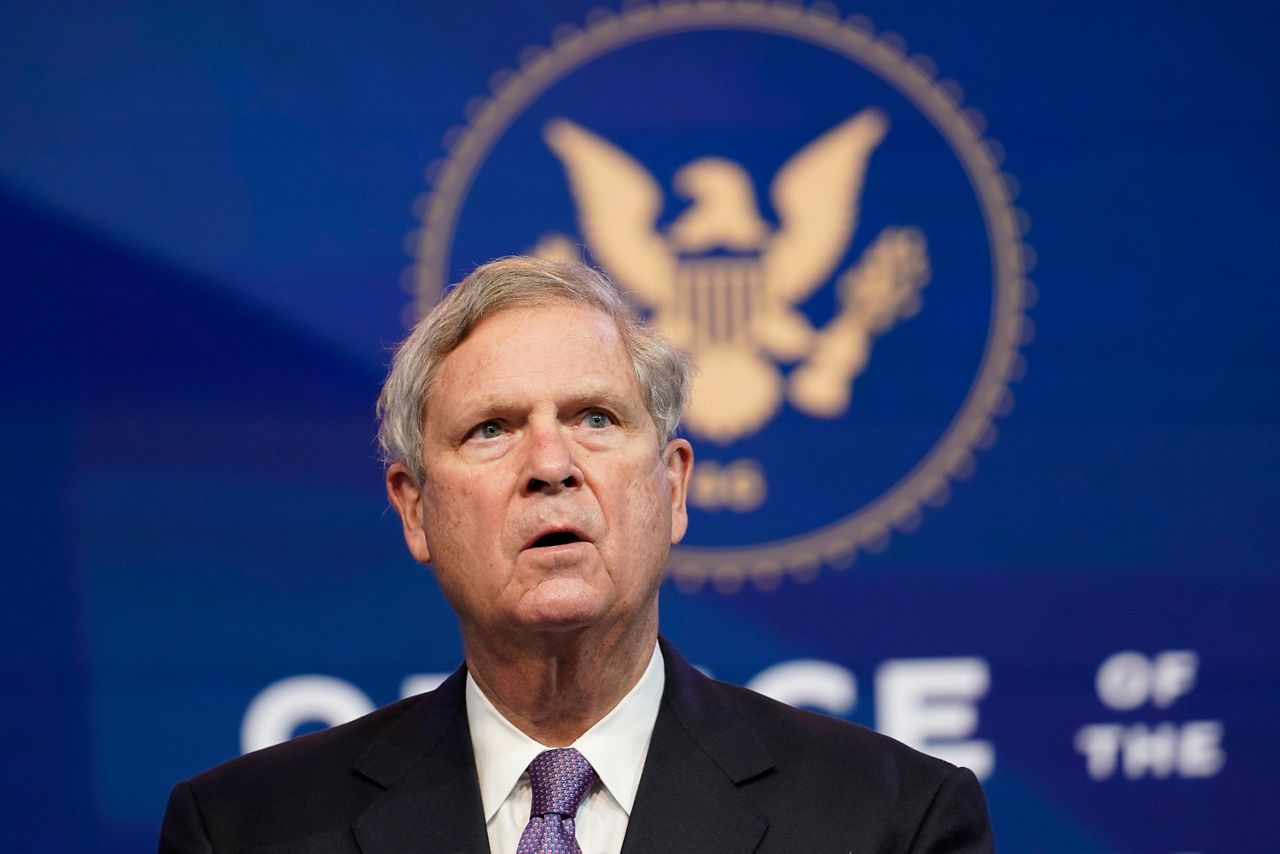
Should his nomination be confirmed, Tom Vilsack would reprise the role as the Secretary of Agriculture for the third time: Vilsack held the position during both of President Barack Obama’s terms.
“I asked [Vilsack] to serve again in this role because he knows USDA inside and out. We need that experience now,” Biden said Friday, adding: “Tom knows the full range of resources available in this department to get immediate relief to those most in need and address the crises facing rural America.”
“I’ve known Tom a long time. He will get it done,” Biden continued.
Biden’s personal relationship with Vilsack goes back decades. He was an early supporter of Biden’s first campaign for president in 1988 while Vilsack was the mayor of Mount Pleasant, Iowa. He endorsed Biden a year before the 2020 election and campaigned tirelessly for him in Iowa, the nation’s first caucus state. Biden adopted aspects of Vilsack’s rural policy agenda as Democrats look to make up ground they’ve lost to Republicans in rural areas over the past decade.
Calling his return to the federal government both a “duty” and “privilege,” Vilsack told Biden and Harris he is “honored by the trust you’ve placed in me to return to the vital work of the USDA at this critical moment for so many families and communities.”
“Our first charge together will be to contribute all that we can as a Department to aid in the pandemic response,” Vilsack added. “Reviving rural economies, addressing dire food shortages, and getting workers and producers the relief they need to hang on and come back stronger.”
Vilsack pledged to work alongside other department heads to advance areas of shared interest, including infrastructure, immigration, and the ongoing opioid crisis.
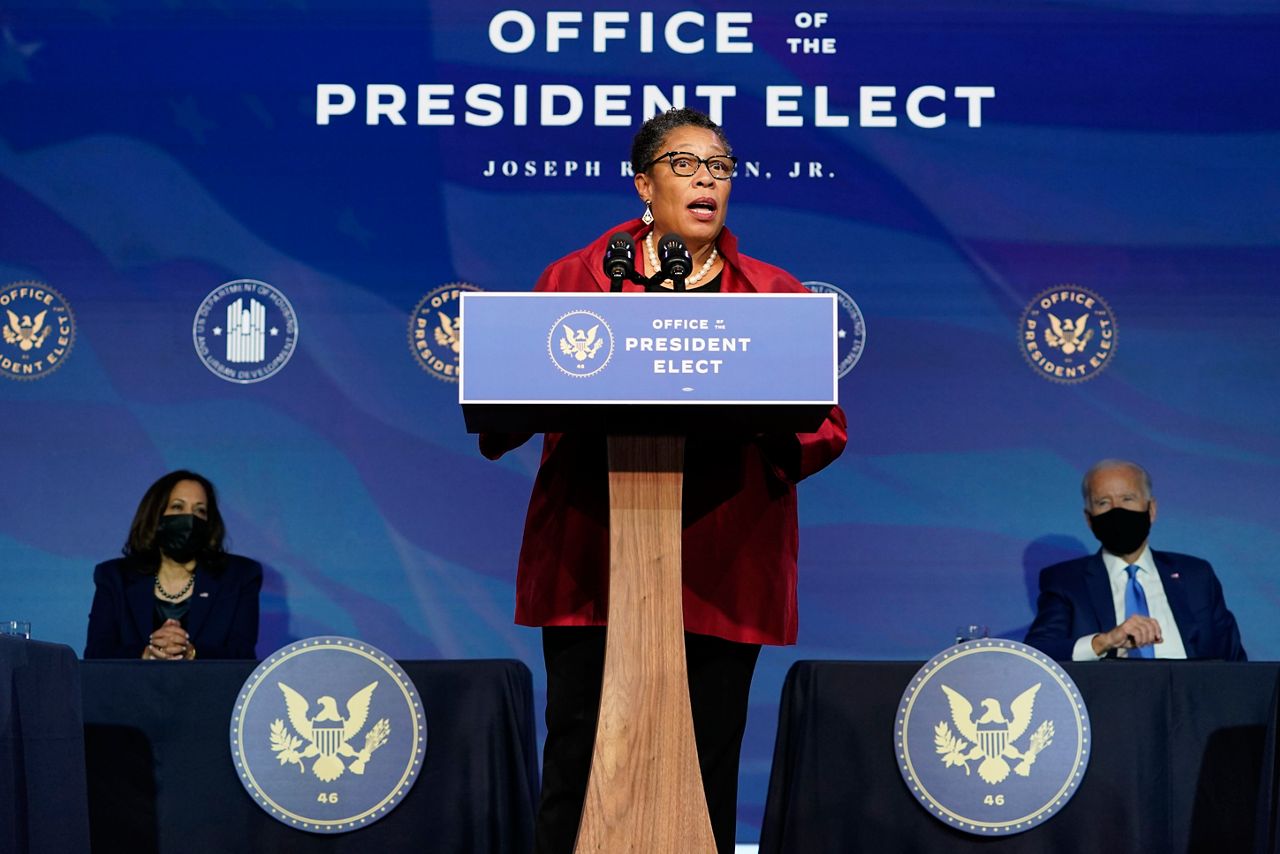
As a longtime member of the House Agriculture Committee and a fierce advocate for food stamps, Ohio Rep. Marcia Fudge was originally discussed to become agriculture secretary.
Biden’s choice to name Fudge his housing and urban development secretary underscores his administration’s push for diversity. Should she be confirmed, Fudge will be the first woman in over 40 years and second-ever Black woman in history to lead the department.
“She’s spent the past decade working to improve blighted neighborhoods and create safer, more affordable communities,” Biden said of Fudge. “She also understands where you live impacts your health, access to education, jobs, and economic opportunity.”
“She’ll bring that same vision as HUD Secretary, using every lever at her disposal to help the millions of Americans facing eviction — trying to pay their mortgage and find their way through this crisis,” he added.
Fudge reiterated Biden’s pledge, praising the incoming president for “building a team that is grounded in dignity.”
“...Our task at the Department of Housing and Urban Development will be to stand up for the dignity of all Americans and deliver the promise of our nation to all those left out in the cold,” Fudge said in part. “We will take on the deep-set roots of poverty and homelessness. We will fight for housing in every community that is affordable, decent, and safe.”
“But perhaps most importantly of all, we will help people believe once again that their government cares about them, no matter who they are,” she added.
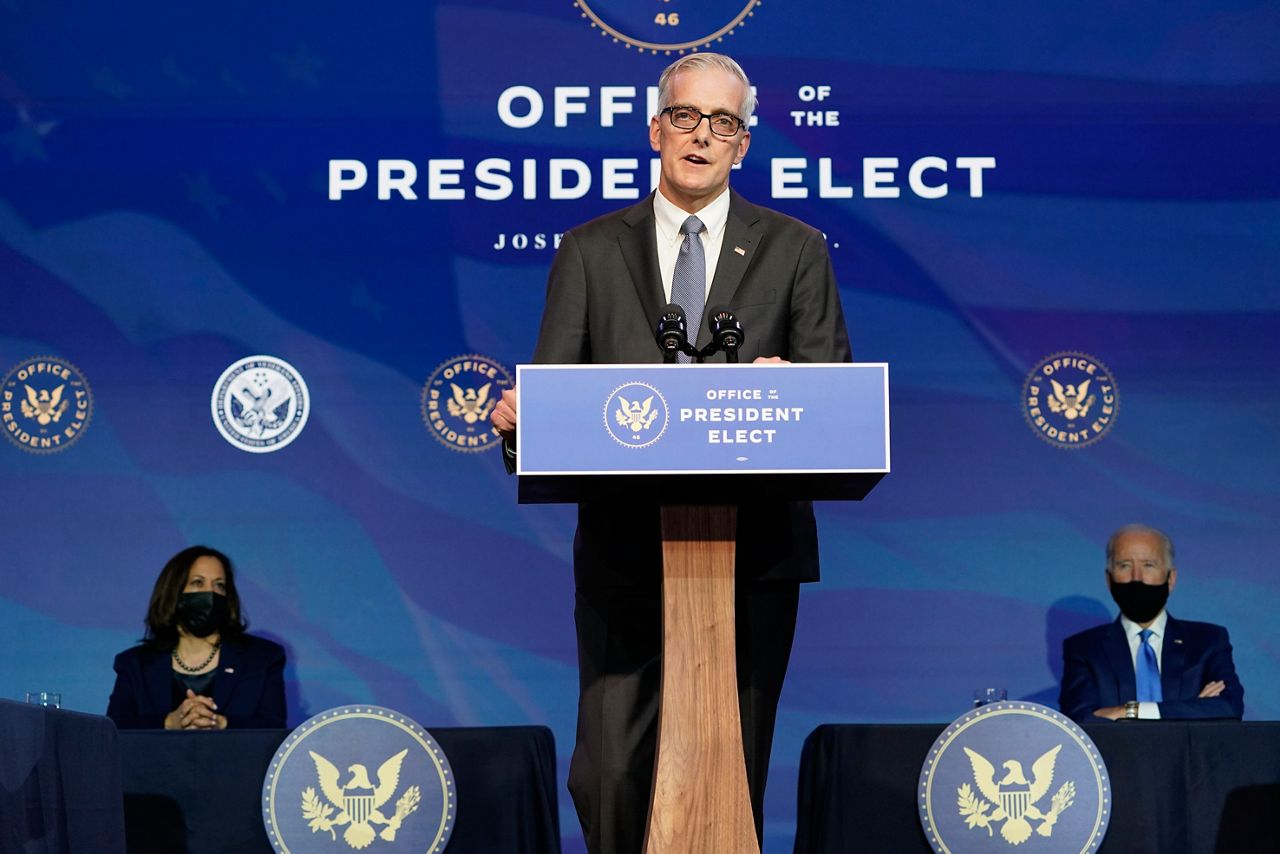
Denis McDonough’s nomination marks yet another return of an Obama-era staffer, as McDonough served as the former president’s White House chief of staff during Obama’s second term in office.
McDonough, who never served in the armed forces, has been nominated to head the Department of Veterans Affairs, a sprawling agency that has presented organizational challenges for both parties over the years.
Biden tapped the nominee not for his service record, but his experience navigating Washington bureaucracy — McDonough was credited with helping Obama try to bridge divides on Capitol Hill, including around one of his most substantial second-term legislative achievements: the Veterans Choice Act.
Citing his “deep experience” in politics, Biden said McDonough “shares my belief that we have many obligations as a nation, but we have only one, truly sacred obligation: To prepare and equip our troops that we send in harm’s way and then to care for them — and their families — when they return.”
In his new role, McDonough will “fight like hell for our veterans and their families,” Biden said, adding: “And anyone who has worked with Denis will tell you, he will move Heaven and Earth to fix any problem and get the job done.”
McDonough cited the many veterans he knows, both personally and professionally, as his inspiration for joining the Biden administration.
“Our men and women in uniform have had our country’s back, and when they come home, we need to have their back,” McDonough said.
“As the president-elect said, his marching order to me are pretty clear: ‘fight like hell for our veterans,’” McDonough continued. “We’re going to fight like hell to give our veterans and their families the healthcare, respect and dignity that they deserve.”
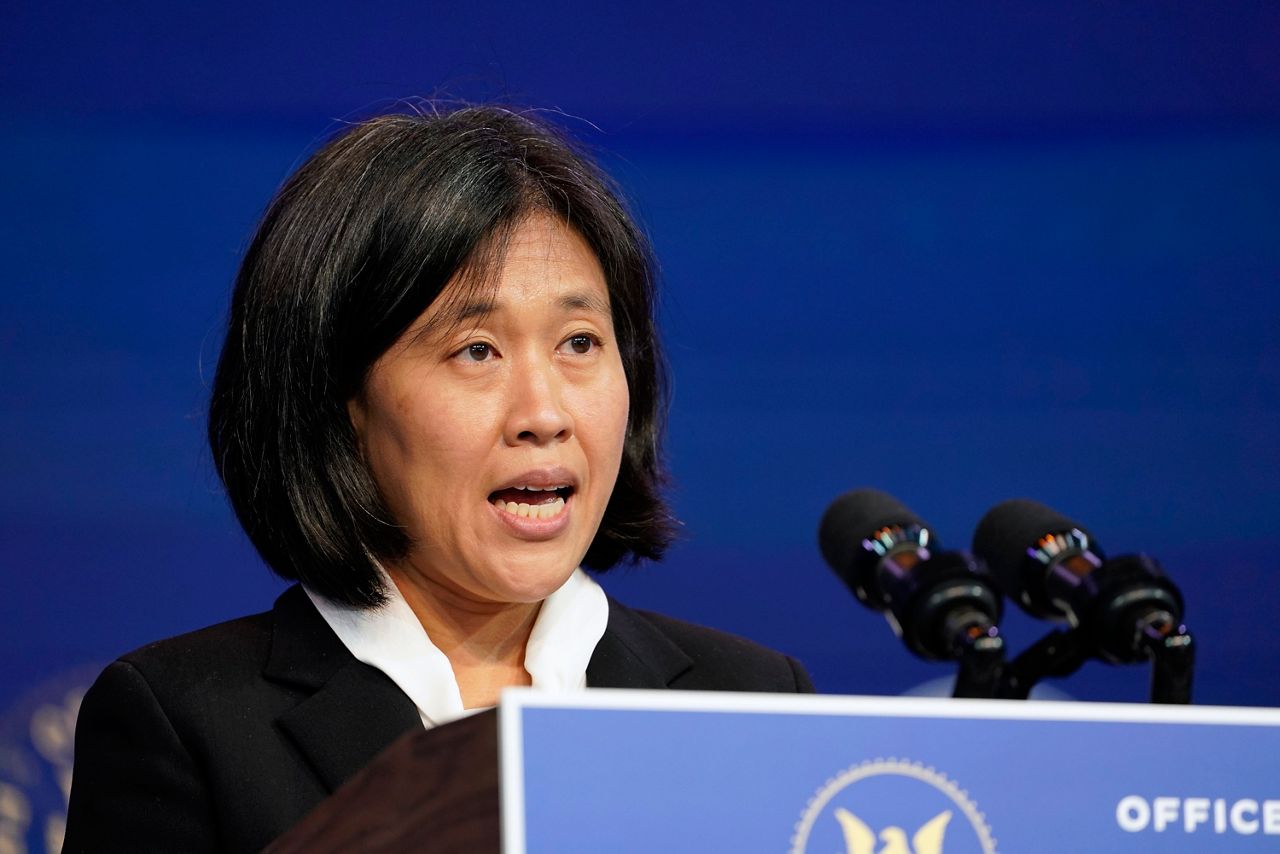
Biden’s nomination of Katherine Tai, chief trade counsel for the House Ways and Means Committee, indicates he intends to keep his promise to choose a diverse Cabinet that reflects the makeup of the country.
Tai, who is Asian American and fluent in Mandarin Chinese, earlier oversaw China trade enforcement for the Office of the U.S. Trade Representative, setting U.S. strategy in trade disputes with China. Biden’s trade representative will inherit a trade war with China, put on pause by an interim trade pact in January that left many of the hardest issues unresolved and U.S. taxes remaining on $360 billion in Chinese imports.
Tai handled negotiations last year with the Trump administration over a revamped North American trade deal, and Biden lauded the bipartisan nature of her nomination on Friday.
Calling her a “dedicated public servant who knows government and who has spent her career leveling the playing field for American workers and families,” Biden said Tai has “earned praise from lawmakers of both parties and from labor and business.”
“If confirmed, she would be the first Asian American and first woman of color to serve in this position,” Biden said. “And our nation, our economy, our workers, our businesses will be fortunate to have her serve in this role.”
In her own address, Tai said being the daughter of immigrants to the United States fills her “with gratitude, for being an American, and for what America is at our best.”
Tai pledged to use her position to create more opportunities for Americans, saying: “Trade is like any other tool in our domestic or foreign policy — it is not an end in itself. It is a means to create more hope and opportunity for people. And it only succeeds when the humanity and dignity of every American — and of all people — lie at the heart of our approach.”
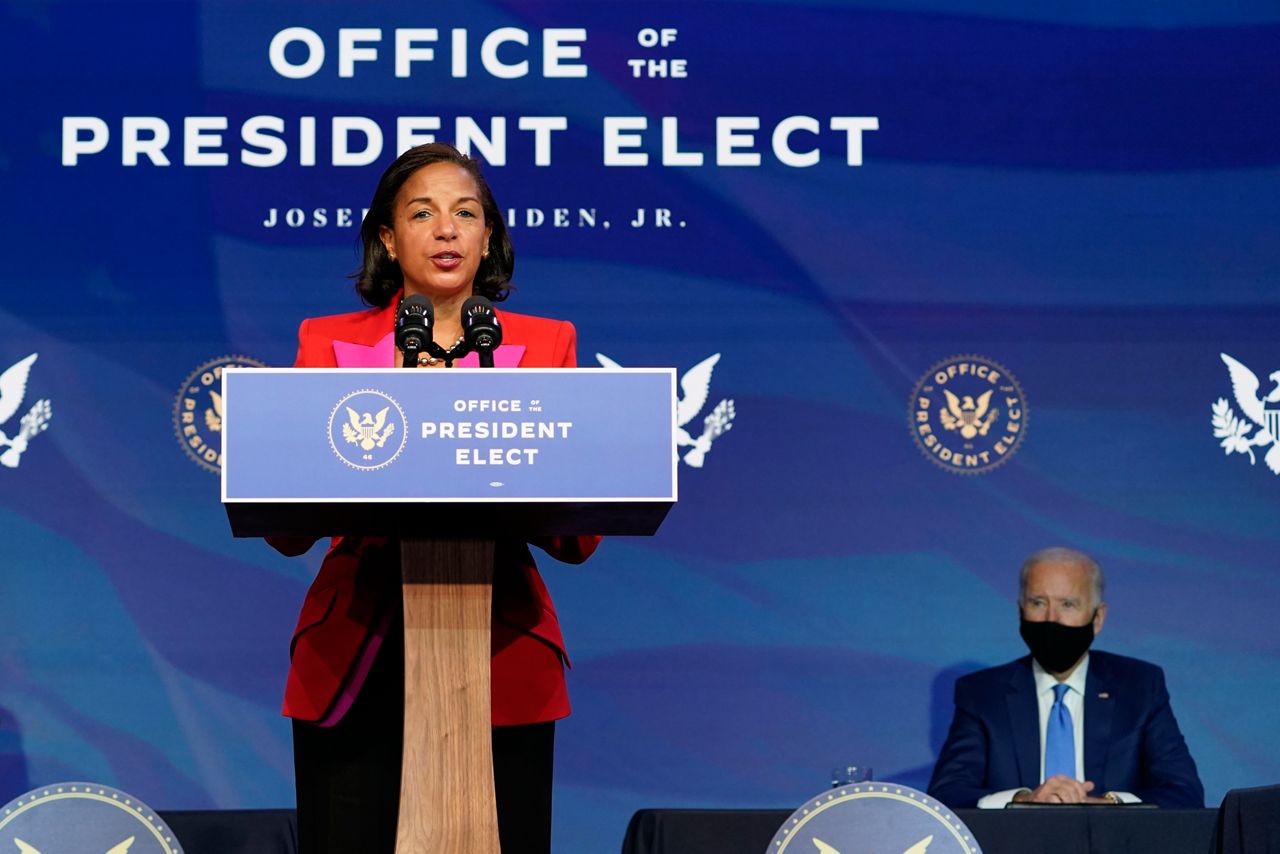
As director of the White House Domestic Policy Council, Susan Rice would have broad sway over his administration’s approach to immigration, health care and racial inequality and elevating the prominence of the position in the West Wing.
Unlike several other nominees, Rice’s role overseeing the council does not require Senate confirmation.
Yet another former Obama staffer who served as U.S. Ambassador to the United Nations and National Security Adviser, Rice is expected to play a large role in the Biden administration’s coronavirus response.
“A former cabinet member, a team player, a policy heavyweight and tough negotiator, and a trusted and tested public servant, who I have known and admired for a long time,” Biden said of Rice. “She will lead and coordinate my critical domestic policy agenda.”
The 56-year-old Rice will be among the most prominent Black women in Biden’s administration. Rice was also in the running to become Biden’s running mate before he picked California Sen. Kamala Harris.
“Today, we confront a profoundly connected set of crises: a relentless pandemic, a struggling economy, urgent demands for racial equity and justice, a climate in need of healing, a democracy in need of repair, and a world in need of renewed American leadership,” Rice said Friday. “In the 21st century, our foreign, economic and domestic imperatives are deeply intertwined. Tackling these challenges is personal to me.”
Calling Biden and Harris’ vision for the future “expansive but achievable,” Rice pledged to “do everything I can to help this country I love “build back better,” to make our government deliver for working families — and to bring the American Dream far closer to reality for all.”
The Associated Press contributed to this report.



